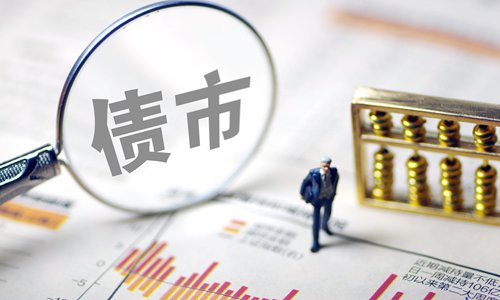Tsinghua Unic's HK-listed bond trading suspended after guarantor's debt default
Source: Global Times Published: 2020/11/18 22:43:12

File photo: IC
Tsinghua Unic Ltd announced Wednesday the suspension of trading of three of its Hong Kong-listed bonds after guarantor Tsinghua Unigroup Co defaulted on bonds valued at 1.3 billion yuan ($198 million) matured Monday, stoking concerns that a corporate bond problem is afoot.
Trading in the debt securities was halted at 1pm Wednesday. In a filing with the Hong Kong bourse operator on Wednesday, Tsinghua Unic said it was aware that Tsinghua Unigroup was unable to redeem the 1.3-billion-yuan bond issuance in the Chinese mainland due to liquidity issues, which has resulted in "an event of default under the onshore bonds."
State-owned semiconductor conglomerate Tsinghua Unigroup, the third-largest shareholder in major Chinese chip foundry Semiconductor Manufacturing International Corporation, has been mired in debt woes.
China Chengxin International Credit Rating Co, a nationwide credit rating agency, on Monday downgraded the debt rating of the semiconductor division of Tsinghua University to BBB from AA.
Tsinghua Unigroup couldn't be immediately reached for comment.
The semiconductor heavyweight could be the highest profile local firm to join a list of recent credit debt defaulters.
Yongcheng Coal and Electricity Holding Group Co, a state-owned mining firm in Central China's Henan Province failed to honor principal and interest payments on a 1-billion-yuan bond maturing November 10, constituting an actual default.
Shenyang Shengjing Energy Development Group Co defaulted on two of its outstanding private placement notes. Qinghai State-owned Assets Investment and Management Co. opted to defer coupon payments on its perpetual bonds.
Brilliance Auto also defaulted on a 1 billion yuan ($148.8 million) private placement bond in late October.
The succession of debt defaults has dealt a big blow to the domestic debt market, Wu Jinduo, head of fixed income at the research institute of Great Wall Securities, told the Global Times on Wednesday.
The debt default by Yongcheng Coal and Electricity Holding Group triggered cross-protection clauses in some of the outstanding debt issued by the coal mining firm and Henan Energy and Chemical Industry Group Co, Wu said, adding that most of the defaulted bonds saw their ratings downgraded.
The COVID-19 epidemic has weighed on business operations and cash flows. Coal and chemistry are the main areas of expertise for some of the defaulters, which have taken a battering from continued fluctuations in oil prices, resulting in widening losses, the analyst reckoned, noting that tightened fundraising since May and a large amount of maturing debt are seen as crippling the issuers' abilities to raise money for repayment.
Since the coal mining major's debt default on November 10, the issuing of 53 bonds involving 28.5 billion yuan has been canceled, the 21st Century Business Herald reported Wednesday. Meanwhile, the coupon rate on bonds being issued is on an upward spiral, with 23 bonds registering a rate of over 4 percent and two of them hitting 7 percent.
Posted in: MARKETS